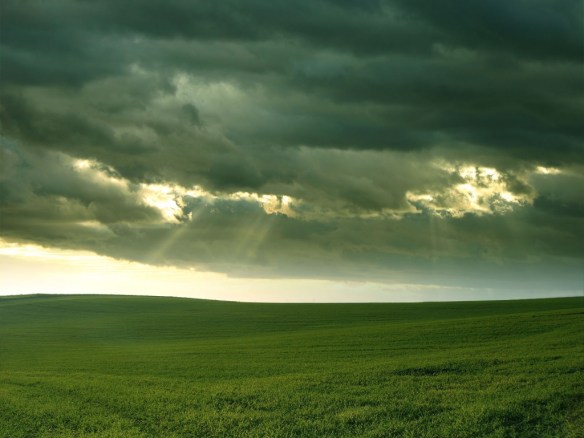…this time in the pages of the New Republic, in an unfortunate ad hominem attack by the former upon the latter. Here is a sample of Coyne’s invective (note, “woo” is Coyne’s word for non-materialist ideas or perspectives): “went off the rails,” “misbehaving woomeisters,” “thinks himself an unrecognized genius, persecuted like Galileo,” “woo-spouting,” “paranoid,” “rant [what he’s referring to is far more restrained than Coyne’s own intemperance],” “paints himself as a martyr again,” “The Woomeister,” “paranoid rants.”
The occasion for all of this is Sheldrake’s post linked above, which discusses a genuinely problematic phenomenon over at Wikipedia involving that immensely seductive word “objectivity.” The trouble is that scientific materialism itself is a philosophical position that cannot be demonstrated “scientifically,” so to simply assert it as simple Truth and “objectivity” is an exercise in dogmatic intolerance.
As Sheldrake rightly points out, there really is an organization which calls itself “Guerilla Skeptics on Wikipedia (GSoW),” they really are (in Sheldrake’s words) “well trained” and “highly motivated.” They do “have an ideological agenda, and operate in teams, contrary to Wikipedia rules.” Susan Gerbic of said group really does have a training video up, and she indeed “glories in the power that she and her warriors wield.”
Topics which span cultural fault lines are naturally going to result in highly contentious Wikipedia Talk pages, as partisans fight to gain as much control as possible over the presentation of the article in question. We are not talking about an Encyclopedia Britannica article, where one person is asked to write something and a very limited number of editors join in the rest of the way. The “Guerilla Skeptics on Wikipedia” have a declared mission to steer a great many articles – and more as each week goes by – their way, along with sophisticated techniques for doing so. The problem is that they are unaware of any potential blindspots in their thinking. Specifically, I refer to that cultural paradigm of scientific materialism being simply “objective” “Truth.”
There certainly are areas of Sheldrake’s thought which I don’t follow, including “morphic resonance,” one of his central ideas. But there is no doubt that his thinking and work overall are at the very least worthy of engagement and at their best represent important critiques of certain tendencies within Science today.
What is always striking to me in Jerry Coyne’s writing is the ever-present shadow of “religion.” The word appears all the time, even when there is no reason for it to. In this current piece it announces itself twice significantly. Consider the following paragraph:
Many of you might know of Sheldrake. He enjoys a certain popularity in the US and UK among those who think that there must be “something more out there”—with “more” meaning psychic phenomena. I don’t really understand a penchant for things that aren’t supported by evidence, but that’s probably a failure of empathy on my part—as well as a product of my scientific training to doubt. I am sure, though, that some of the same psychological tendencies that promote sympathy for woo also promote sympathy for religion.
This is revealing, I think. First, “something more out there” – more, that is to say, than what is contained in a purely materialist philosophy – becomes effectively reduced to the phrase “psychic phenomena.” What’s wrong with that? Doesn’t Sheldrake believe certain “psychic phenomena” exist? Yes, he does, but nonetheless I would say Coyne’s sentence is misleading. “Psychic phenomena” is a vague phrase encompassing everything from easily mockable fringe beliefs to non-materialist ways of seeing grounded firmly in “evidence-based” practice. Then there is the link between “sympathy for woo” and “sympathy for religion.” What “religion” is he talking about? The word encompasses an extraordinarily vast and varied field of views, ideas, practices. It claims some of the most degraded as well as some of the most realized beings in our human experience.
And then later in his piece he complains about a BBC interview with Sheldrake concerning the Wikipedia war over his own (Sheldrake’s) page, on the grounds that the opposing side wasn’t represented (though he reports the BBC’s intention to do just that sometime this week). At which point there follows this parenthetical remark: “[Note: the BBC interviewer, Dan Damon, describes himself and his wife as ‘keen churchgoers’].” The implication is as clear as can be: a “keen churchgoer” is de facto suspect as an inquirer into this matter of Wikipedia integrity, in a way “The Guerilla Skeptics on Wikipedia,” well, aren’t – at all. They’re simply “objective” defenders of The Truth, of course.
(For anyone who wishes to compare Coyne’s characterization of Sheldrake with the latter himself, I embedded in a previous post his “infamous” TEDx talk here. You may disagree with Sheldrake there to one degree or another but I really don’t think it can be said that Coyne’s constant references to him in this article as “paranoid” and a ranter, as someone who likes to proclaim himself a “persecuted” “genius” and “martyr,” as someone “off the rails,” are demonstrable. This can be said also of several interviews I have heard with Sheldrake.)



